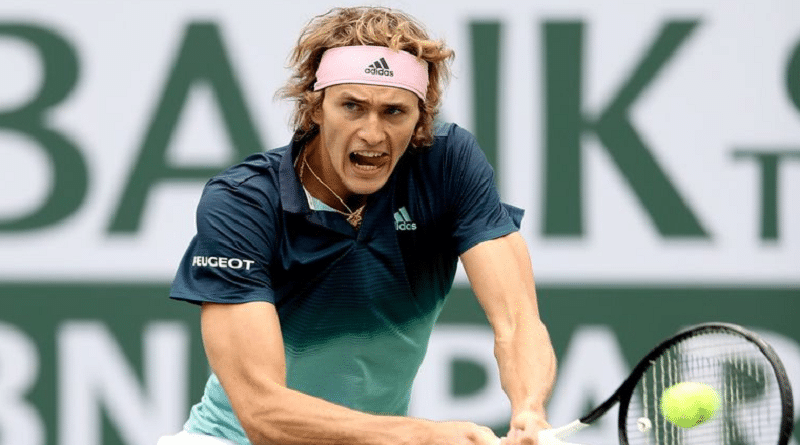Table of Contents

Zverev Blames Illness and Health Update
Alexander Zverev, the talented German tennis sensation, recently faced a challenging Australian Open semi-final against Daniil Medvedev. In an intense five-set match, Zverev lost, and his energy seemed to dwindle as the game progressed. In this article, we will delve into the details of what transpired during the match and explore the illness that Zverev blames for his subpar performance.
The Match That Unfolded
Zverev revealed that his energy levels began to decline during the match, particularly towards the end of the second set. This deterioration in his physical condition was attributed to a recent bout of illness he experienced after a previous victory over Carlos Alcaraz. The illness left him feeling unwell and hindered his recovery process, making it increasingly challenging for him to compete at his best against Medvedev.
Health vs. Tennis Performance
Despite the closeness of the third and fourth sets, Zverev candidly admitted that his health, compromised by the recent illness, played a more significant role in his loss than his tennis performance. This highlights the physical demands of professional tennis and the critical role that a player’s well-being can play in their overall performance.
Zverev’s Background
To better understand the impact of this recent illness, let’s take a closer look at Alexander Zverev’s background. Born on April 20, 1997, in Hamburg, Germany, Zverev hails from a tennis-centric family. Both of his parents were professional tennis players for the Soviet Union. His father, Alexander Mikhailovich Zverev, reached the top rank nationally among men’s players, while his mother, Irina Zvereva, was the fourth-highest-ranked women’s player in the Soviet Union. Zverev’s older brother, Mischa, is also a professional tennis player.
| Full Name | Alexander Zverev |
| Birth Date | April 20, 1997 |
| Age | 26 |
| Birthplace | Hamburg, Germany |
| Residence | Monte Carlo, Monaco |
| Height | 1.98 m (6 ft 6 in) |
| Turned Pro | 2013 |
| Plays | Right-handed (two-handed backhand) |
| Coach | Alexander Zverev Sr. |
The Early Years
Zverev’s introduction to tennis began at the tender age of 3, nurtured by his tennis-savvy family. His mother focused on honing his technique, particularly his two-handed backhand, while his father emphasized a more aggressive playing style. Despite early struggles, Zverev’s dedication to the sport bore fruit as he became one of the youngest Challenger Tour title winners at just 17 years old.
A Career with Ups and Downs
Alexander Zverev’s career has been a rollercoaster ride, characterized by significant achievements and occasional setbacks. Notably, he clinched an Olympic gold medal in singles at the 2020 Tokyo Olympics, a testament to his prowess on the court. However, injuries, including an ankle injury at the French Open, have punctuated his journey, affecting his performance.
The Challenges of Professional Tennis
Zverev’s comments about blaming his career for certain issues shed light on the pressures faced by professional athletes. The world of tennis is fiercely competitive, and athletes like Zverev often grapple with expectations, intense competition, and the toll that the sport takes on their physical and mental well-being. It’s crucial to empathize with the challenges that athletes encounter throughout their careers.
Zverev’s Age Factor
At the age of 26, Alexander Zverev is at a juncture in his career where age-related factors come into play. Professional tennis demands peak physical fitness, and players are susceptible to injuries or health concerns due to the rigorous demands of the sport. Additionally, the mental strain and expectations in the competitive tennis circuit can affect athletes of any age. Zverev’s acknowledgment of age-related challenges is a reflection of the dynamic nature of professional sports.
FAQs
1. What caused Zverev’s struggle in the Australian Open semi-final against Medvedev?
- Zverev faced a tough match due to feeling unwell after his previous victory, experiencing fever, which hindered his recovery and impacted his physical condition during the match.
2. Why did Zverev attribute his decline to his health rather than his tennis performance?
- Zverev admitted that, despite being close in sets, his health, affected by recent illness, played a significant role in his loss, emphasizing it more than his tennis performance.
3. Who is Zverev Blames?
- Alexander Zverev, he is a professional tennis player from Germany.
4. When did Zverev start playing tennis?
- Zverev started playing tennis at the age of 3, growing up in a family with a tennis background, where both parents were professional tennis players.
5. How has Zverev’s career trajectory been, considering his ups and downs?
- Zverev’s career has seen ups and downs, including ATP titles and an Olympic gold medal, but also setbacks like injuries, reflecting the challenges athletes face in professional sports.
In conclusion, Alexander Zverev’s recent illness significantly impacted his performance in the Australian Open semi-final against Daniil Medvedev. While his tennis career has been marked by both successes and challenges, it’s crucial to recognize the toll that professional tennis can take on an athlete’s physical and mental well-being. Zverev’s openness about his struggles sheds light on the complex world of professional sports and the importance of holistic well-being for athletes. Visit – NewsPSP | NewsDekha